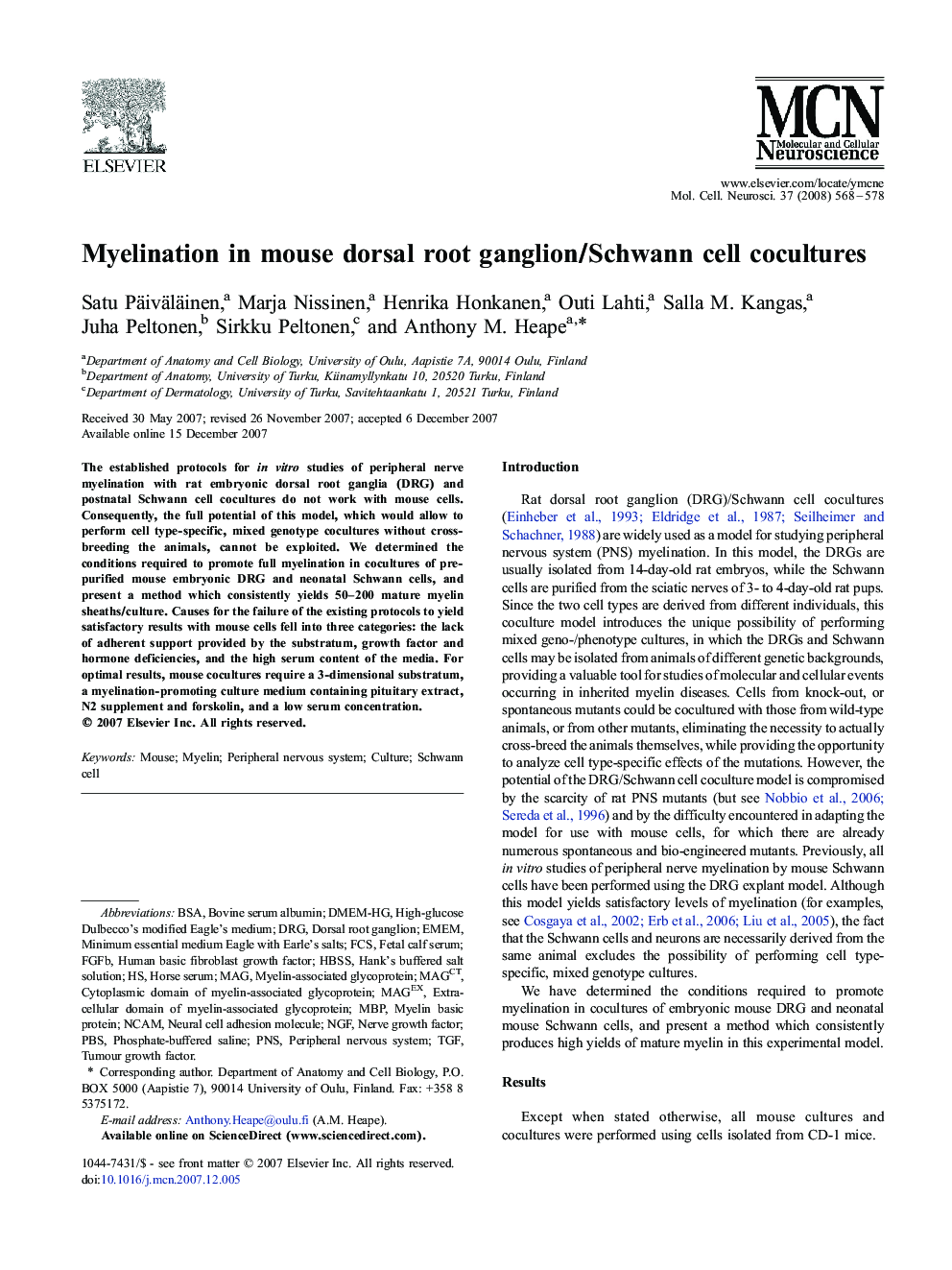| Article ID | Journal | Published Year | Pages | File Type |
|---|---|---|---|---|
| 2199250 | Molecular and Cellular Neuroscience | 2008 | 11 Pages |
The established protocols for in vitro studies of peripheral nerve myelination with rat embryonic dorsal root ganglia (DRG) and postnatal Schwann cell cocultures do not work with mouse cells. Consequently, the full potential of this model, which would allow to perform cell type-specific, mixed genotype cocultures without cross-breeding the animals, cannot be exploited. We determined the conditions required to promote full myelination in cocultures of pre-purified mouse embryonic DRG and neonatal Schwann cells, and present a method which consistently yields 50–200 mature myelin sheaths/culture. Causes for the failure of the existing protocols to yield satisfactory results with mouse cells fell into three categories: the lack of adherent support provided by the substratum, growth factor and hormone deficiencies, and the high serum content of the media. For optimal results, mouse cocultures require a 3-dimensional substratum, a myelination-promoting culture medium containing pituitary extract, N2 supplement and forskolin, and a low serum concentration.
